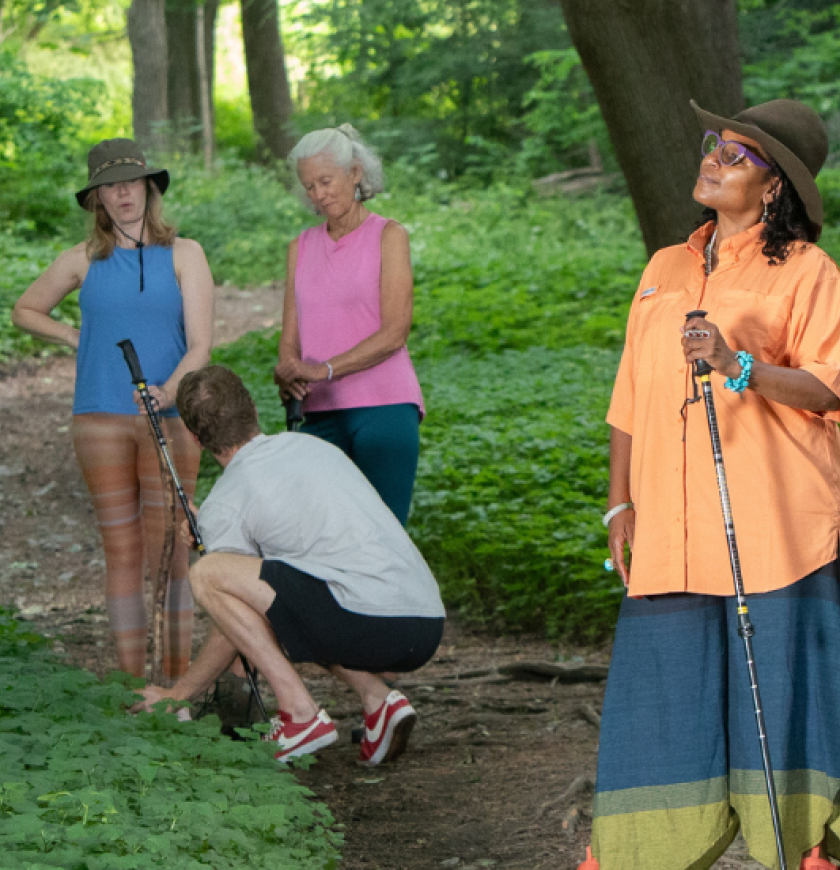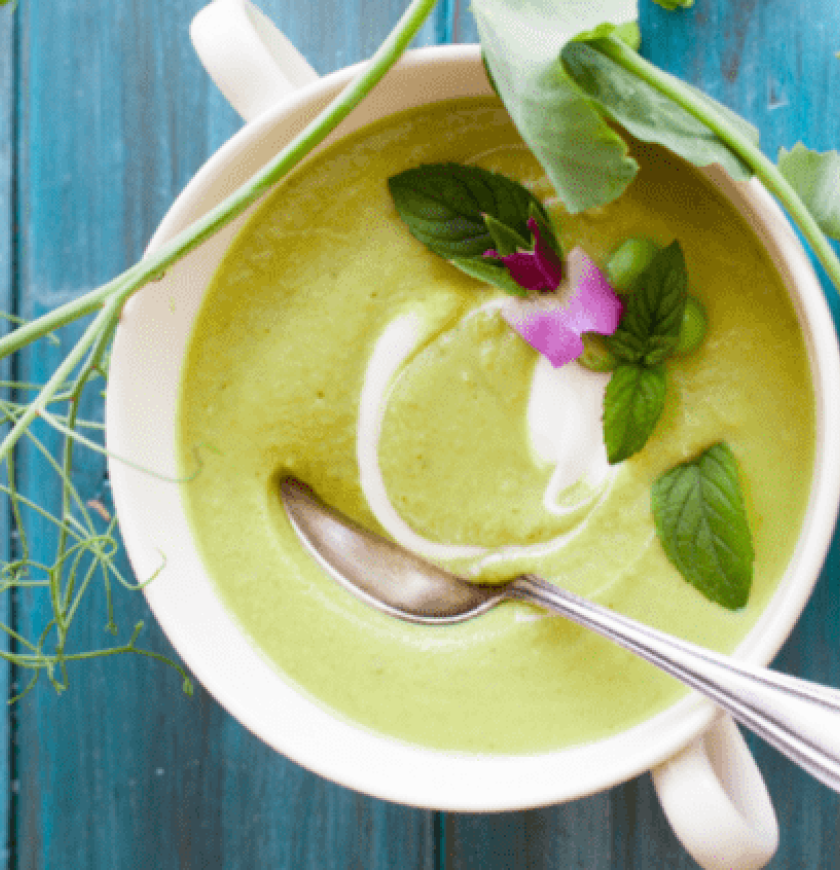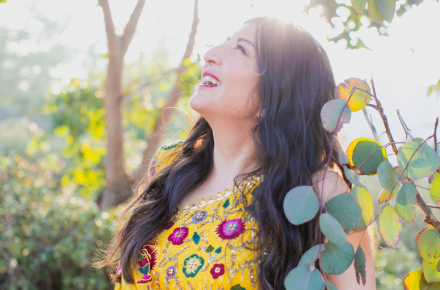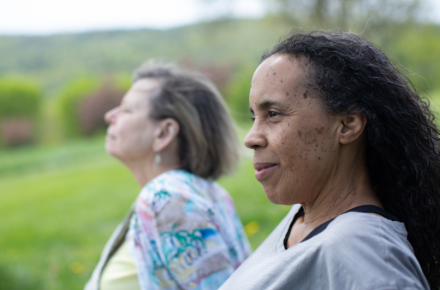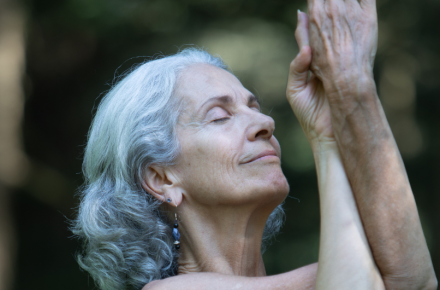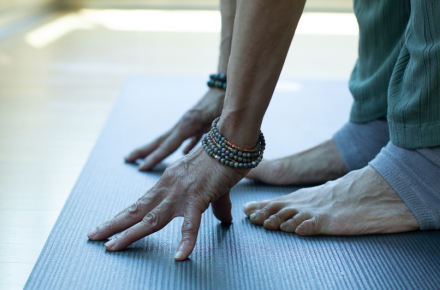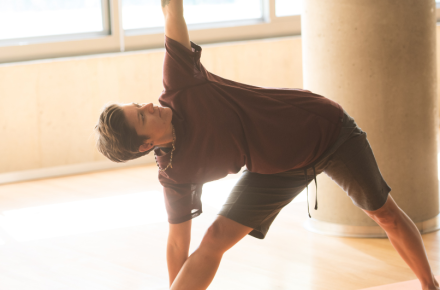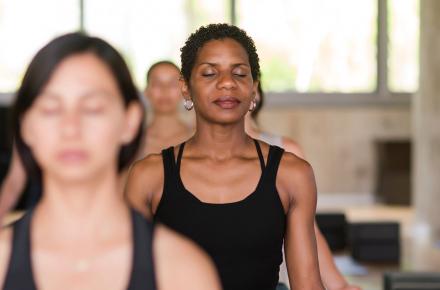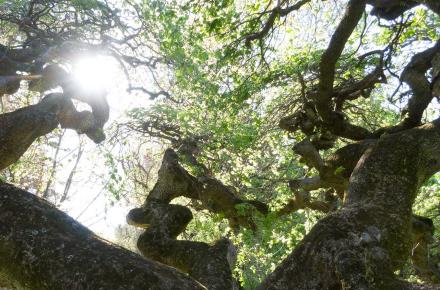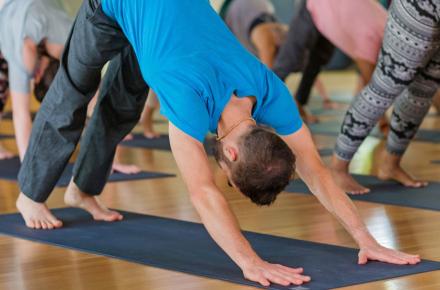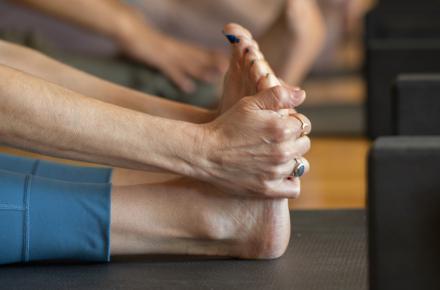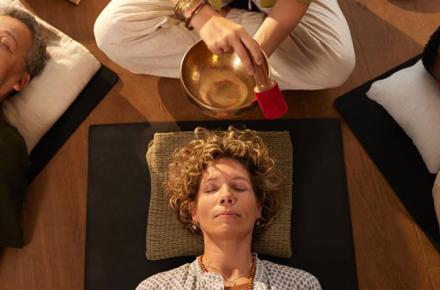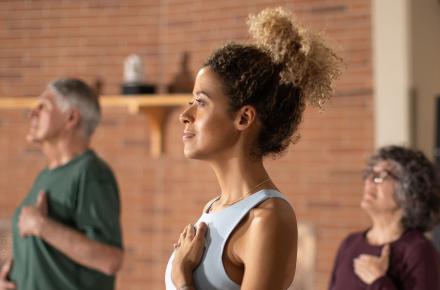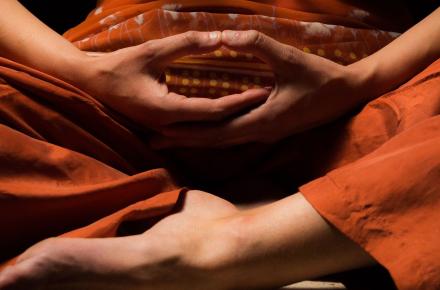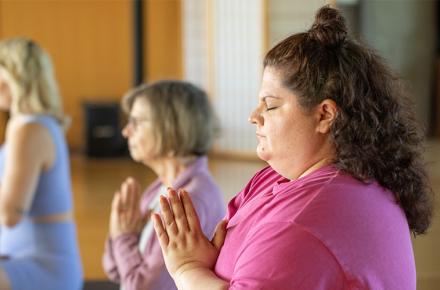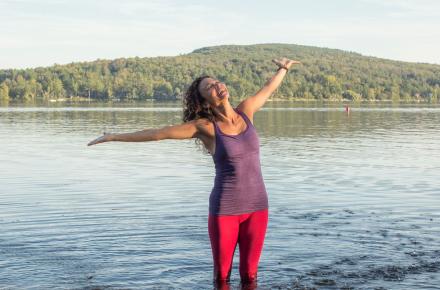Yoga for Moving into Bliss and Balance: A Q&A with Yogrishi Vishvketu
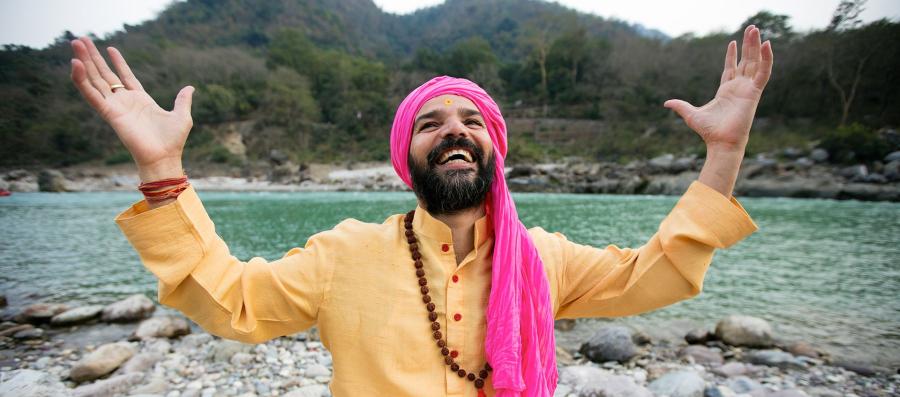
Yogrishi Vishvketu (Vishva-ji), PhD, founder of Akhanda Yoga, is known for his infectious laughter and stories. A yogi at heart, Vishva-ji has studied and practiced yoga in the Himalayas since the age of eight and holds a doctorate in yoga philosophy. In 2001, he moved to Canada, and began to teach internationally, offering Western students an accessible approach to the yoga tradition. He’s the author of Yogasana: The Encyclopedia of Yoga Poses. In this Q&A, Vishva-ji shares thoughts on balancing the koshas, the connection between yoga and bliss, and the Akhanda Yoga approach.
What led you to begin practicing and studying yoga so early in life?
Yoga has been my life since I was a baby. I come from a family with swamis (renunciates) on both sides. After running away to a nearby temple a few times, my family agreed to let me live and study at my uncle’s Vedic school at eight years old. I feel the yoga techniques have always been inside of me. When I was older, I received a scholarship to a well-known sports college, where I majored in yoga. After that, I spent many years researching ancient texts for my MA and PhD in yoga.
How have your life experiences and personal understanding of yoga shaped the approach you share with students?
My experiences in the West showed me that sometimes only pieces of yoga are taught, but there is more to practice than just the poses. Yoga is much more beneficial when practiced holistically. That is why I developed Akhanda Yoga, as a holistic approach to life, not just exercise. I share asana (poses), pranayama (breathing), mantra (sound work), meditation, and kernels of yogic wisdom in every class I teach. Each part is so important, because together they can help us all feel whole and connected. Akhanda means “whole.” Practicing all parts of yoga together leads to us to joy, ease, and integration.
You often teach about the connection between yoga and bliss. How can we bring more bliss into our lives? What is the most important first step to take toward accessing greater bliss?
Start now. Realize why you are here. Begin to breathe and observe your thoughts. Where do you want to spend your energy? Where do you want to head, toward happiness and blissfulness, or somewhere else?
What benefits of yoga do you think are most important today for contemporary students, particularly Western students?
Accepting yourself. Connecting to friends, family, other people, and most important, to yourself. Finding happiness and purpose. Being proud of yourself. Yoga balances emotions, improves health, uplifts spirits, clears the mind, and strengthens willpower.
How can awareness of the koshas benefit us in everyday life?
The koshas are like an onion with five layers. Each of us have them; if they are out of balance, we feel disconnected from everything.
The body is managed through asana practice and healthy, happy food. The energy system is balanced with pranayama, environment, and connection to creativity and higher self. Throughout the day we make so many decisions. If we are mentally balanced, we make healthy choices. Sound and mantra help bring balance and bliss. If you put a lot into it, you’ll get a lot out of it.
Building the ability to witness without getting involved in extra drama can help. This is done with meditation—giving the mind the space it needs.
Balancing the koshas will connect you to the purpose of your life. This system brings so much contentment and peace. Through this practice, you will discover your higher self and spread bliss into the world. I feel this is our responsibility. Be joyful and playful, and spread happiness wherever you go.
Find out about upcoming programs with Yogrishi Vishvketu (Vishva-ji) at Kripalu.
© Kripalu Center for Yoga & Health. All rights reserved. To request permission to reprint, please email editor@kripalu.org.

